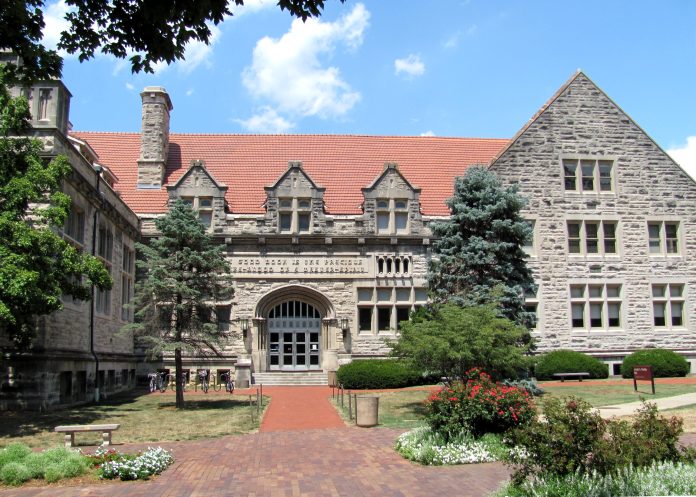
The Media School at Indiana University (IU) Bloomington suspended all print operations of the Indiana Daily Student (IDS) on Oct. 15, citing financial restructuring within the publication. The decision, which came less than 24 hours after the firing of student media director Jim Rodenbush following an editorial dispute, has drawn nationwide criticism for its alleged censorship of student journalists.
The incident marked an escalation in tensions between the IDS and university administrators that had been building for months. Beginning in the Spring 2025 semester, the IDS had already been required to limit print production to seven special editions per semester under the university’s five-year Student Media Action Plan—a restructuring measure introduced after IU forgave nearly $1 million of the newspaper’s accumulated debt in July 2024. Even under the revised model, which intended to stabilize finances and modernize operations, administrators reportedly expressed frustration that the IDS continued to include news in its limited print editions rather than focusing solely on fluff content and guides.
According to a report by the Herald-Times, those tensions came to a head in October with the Homecoming special edition, after which administrators instructed Rodenbush to restrict what students could publish in print. When Rodenbush refused, he was terminated on Oct. 14. The following day, IDS staff received an email from Media School Dean David Tolchinsky ordering all print production to cease within the week.
In an Oct. 30 letter to the editor, Chancellor David Reingold said that halting the paper’s print production was a “budget-related decision” driven by sustainability concerns rather than content oversight.
“Indiana University has never attempted to censor editorial content, period,” Reingold wrote. “The long-term financial viability of the IDS cannot be dismissed as trivial, especially in this resource-constrained environment.”
However, several nonpartisan press freedom advocacy organizations—including the Student Press Law Center (SPLC), the Reporters Committee for Freedom of the Press (RCFP) and the Foundation for Individual Rights and Expression (FIRE)—have condemned the university’s actions, calling them a clear violation of student press independence and a troubling act of administrative overreach.
“Even if IU were somehow driven by financial concerns, that would not entitle administrators to control the IDS’s journalistic decisions,” wrote RCFP attorney Kristopher Cundiff in a letter to the university on Oct. 20. “The wholesale elimination of print … under the current facts becomes a tacit declaration from IU that if the IDS will not print specific University-approved content, it can print nothing at all.”
IDS editors-in-chief Mia Hilkowitz and Andrew Miller have also been vocal in opposition to the university’s actions.
“This is not about print. This is about a breach of editorial independence,” they wrote in an Oct. 15 IDS letter. “We will continue to resist as long as the university disregards the law.”
On Oct. 30, Rodenbush filed a federal lawsuit against Indiana University contending violations of the First and 14th Amendments. The same day, the university reversed its decision to halt print production until June 30, 2026.
There has been online speculation on whether the ceasing of print production was covertly a university attempt to silence news that painted IU in a negative light—such as the Sept. 4 printed coverage of pro-Palestine protests being ordered to cease and desist—particularly after FIRE ranked IU as the third-worst university campus for free speech in the nation. This speculation piqued the interest of Rodenbush himself, who wondered if such news might put the university under more pressure from not only students but also state government.
“In general, it’s easy to connect the dots of all the things that are happening at the state level, like budget cuts to IU, Mike Braun being in charge of the board of trustees, the FIRE ranking, and all the changes that [IU] made to their protest policies to wipe student protest off of campus,” Rodenbush said in an interview with The DePauw. “It’s easy to see what they were attempting to do with the IDS to make sure that IU doesn’t make any noise that catches attention.”
While the reversal of the print suspension may provide a temporary reprieve for the IDS, Rodenbush, newspaper staff and supporters of the publication are far from resigned. Amidst competing problems of dwindling newspaper budgets and the implications of attacks on free speech across the nation, the censorship controversy at Indiana University highlights the fragile balance between administrative control and student press freedom that is increasingly difficult to ignore.


